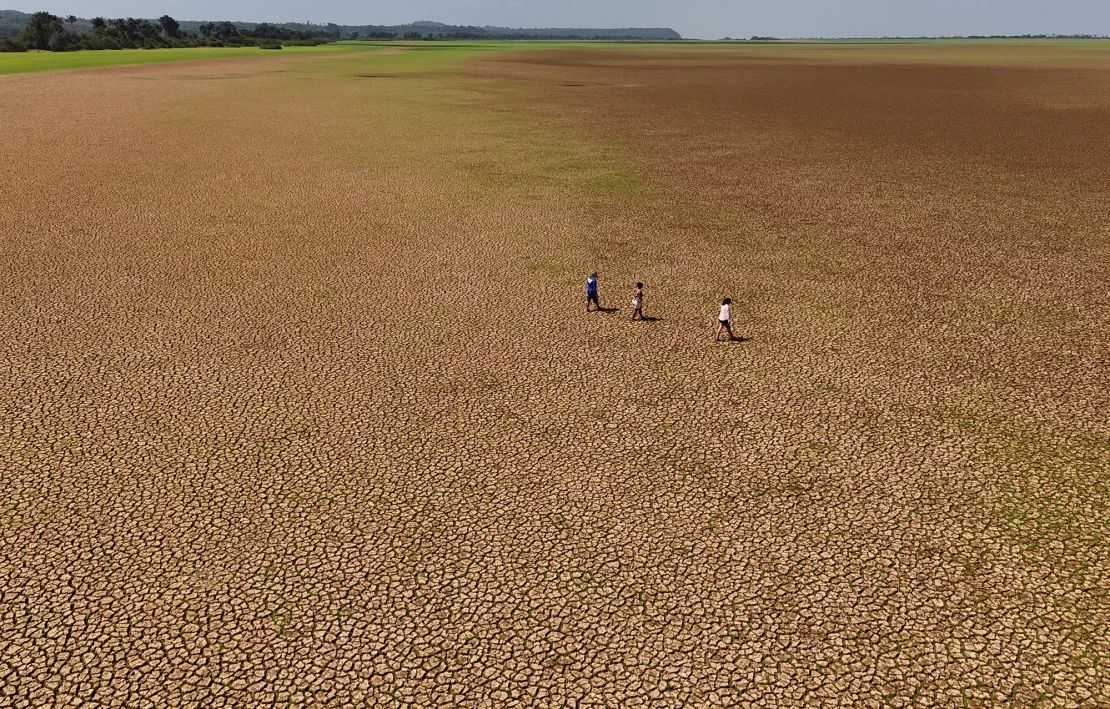Hard setback for the climate objective of Paris: two studies question their viability. A scientist goes even further

CNN
–
Some areas of the United States may be suffering a icy climate, but the planet as a whole, is beating heat records, and that is very bad news. Two new studies conclude that it is a sign that the planet is probably on its way to breaking the objective of Paris’s climate agreement to limit global warming to 1.5 degrees Celsius.
The studies, both published on Monday in the journal Nature Climate Change, are the most recent evidence that the world is failing to address the climate crisis, and arrive just a few weeks after an even more severe warning of the renowned climate scientist James Hansen, who said that the planet was on its way to exceed 2 degrees of global warming in the next two decades.
While many scientists said that these heating levels can be avoided with rapid and immediate cuts of emissions, the possibilities of this happening seem more and more scarce as international climate action falters. One of President Donald Trump’s first measures was to withdraw the United States from the Paris Climate Agreement and now other countries, such as Argentina and Indonesia, would be considering retiring.
The Paris agreement has a great symbolism. In 2015, almost all countries in the world agreed 5 degrees.
Scientists affirm that, above 1.5 degrees, it will be difficult for humans and ecosystems to adapt to an increasingly extreme heat, droughts, floods and fires. If the increase is 2 degrees, millions of lives will be in danger and significantly increases the danger that inflection points are triggered, such as the melting of ice layers and the death of the world’s coral reefs.
Since 2015, 1.5 degrees has become synonymous with avoiding more catastrophic climate change. However, global temperatures continued to increase. Last year was the first calendar year to exceed 1.5 degrees.
As Paris’s objectives refer to averages over about two decades, instead of individual months or years, this means that breach of the agreement can only be confirmed safely in retrospect, when it is too late.
Scientists who are behind these two new articles tried to determine if the world is already in their first long -term heating of 1.5 degrees. The news is not good.
Alex Cannon’s study, a research scientist at Environment and Climate Change Canada, concluded that there were between 60% and 80% possibilities that the Paris threshold had already crossed, since for 12 consecutive months the temperature had registered the minus 1.5 degrees.


If the world experiences 18 consecutive months with a temperature equal to or greater than the limit of 1.5 degrees, it will be “practically safe” that the Paris Agreement was breached, the report concluded.
The other study, led by Emanuele Bevacqua, a climate scientist at the Helmholtz center in Germany, used real world climate data and climatic models. When analyzing the historical tendencies of warming, he discovered that the first year in which a temperature threshold was also exceeded was also within the first 20 -year period in which the average temperatures reached the same threshold.
If these trends continue, it is almost certain that 2024 will fall within the first period of 20 years of 1.5 degree heating, the report concluded.
Both documents underline that a quick and energetic action against climate change can still reduce the probability of breaching the objectives of the Paris Agreement in the coming years and decades.
“To all purposes, overcome the threshold of 1.5 degrees is a fact,” said Richard Allen, a professor of climatic sciences at Reading University, who did not participate in the studies. “We need to redouble efforts to avoid even more dangerous threshold of the 2 degrees Celsius through a rapid and massive reduction in greenhouse gas emissions.”
However, for others, that ship already sailed. The climate scientist James Hansen, who was one of the first to publicly warn the world about climate change, said last year that the objective of 1.5 was “more dead than a nail.”
This month, he was co -author of an article that concluded that global warming is accelerated faster than expected, largely due to regulations to reduce maritime transport pollution. While this pollution is a danger to human health, it also has the effect of reflecting sunlight outside the earth.
As a result, he said, it is likely that global warming exceed 2 degrees in the coming decades, with devastating consequences, including the melting of the ice layer and the increase in sea level.
The new studies are, without a doubt, bad news, said Daniela Schmidt, professor of Earth Sciences at Bristol University, but warned that you do not have to become obsessed with the objective of 1.5 degrees, since “it has the risk real to reduce actions and demotivate us all ”if it is exceeded, he said.
The lack of ambition will keep the world in its current warming trajectory of around 3 degrees, he added. “That warming has immense and partly irreversible consequences for nature and people.”
(Tagstotranslate) Paris Agreement
Source link




